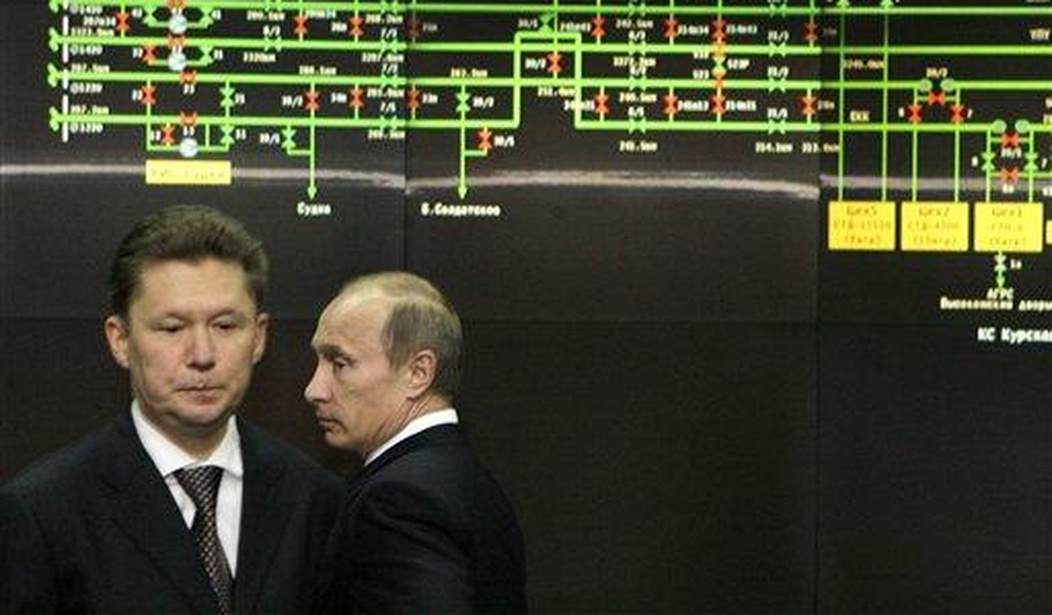Last month, Russia cut the supply of natural gas to Germany by about 60%, claiming it was unable to maintain the supply because of required maintenance. Specifically, Russia said that a turbine for its German-made natural gas pumps had been sent to Canada for repairs and, because of sanctions, the turbine couldn’t be returned to Russia. That story turned out to be true but Germany’s Germany’s vice chancellor and economic minister, Robert Habeck accused Russia of moving the scheduled maintenance forward as part of a “political decision.”
There have been a few developments in the story since then. First, Canada has decided to make a special exception to sanctions so that the repaired turbine can be returned to Germany.
The Canadian government says it will now return a repaired Siemens turbine to Germany for the pipeline. That move angered the Ukrainian government, which accused Canada of adjusting the sanctions imposed on Moscow “to the whims of Russia”
Canada says it is granting Siemens Canada a “time-limited and revocable permit” to send repaired turbines back to Germany, despite the sanctions.
Just today, the US State Department issued a statement backing that decision. Of course the real problem is that the turbine is just an excuse. Russia can come up with other excuses if it’s inclined to do so. Germany is now preparing itself for the possibility that, despite the return of the refurbished part, Russia could completely cut off the flow of gas through the Nord Stream 1 pipeline this winter. That would be a serious problem because there is a spike in German gas usage in the winter, primarily for heating homes. If that supply was cut off completely, people would be in danger of freezing. Germany does have a gas reserve which it builds up over the summer but it’s currently only about 2/3 full.
If Russian supplies were suddenly cut overnight, this could tip Germany into a major recession, because entire industries rely on gas and most German homes use it for heating.
A leading energy market analyst, Henning Gloystein of Eurasia Group, warned that “if Nord Stream 1 doesn’t come back on at all, let’s say by early August, we think that the German government will have to raise its gas alert level to the third level, which is the maximum level”.
“That would be suspending the wholesale gas market and the government and regulator stepping in as the distributor of natural gas. So that will effectively mean rationing next winter. What happens in Germany, sadly, will spread over to the rest of Europe if it gets bad, because of the geographical location in the middle of the EU,” he told the BBC…
German households and key services such as hospitals will be prioritised for gas supplies under a government emergency plan.
In short, if the gas is shut off this winter, Germany’s government will step in and ration off the gas it has for winter heating. In fact, the rationing at the local level has already begun.
Germany’s biggest landlord will turn down the heat for hundreds of thousands of residents in the coming months as Russia throttles supplies of natural gas.
Vonovia, which bills itself as the biggest provider of housing in Germany with 1 million tenants, said Thursday it was trying “to save as much gas as possible” to prepare for a deepening energy crisis. The restrictions would apply to 55% of its apartments and continue until further notice, a spokesperson said.
Industries relying on gas for production it will probably be completely out of luck. Gas is also used to generate electricity so Germany might find itself forced to rely on more coal which it has in abundance. Austria is making similar plans in case the Russian gas supply is cut off. They EU’s climate goals won’t matter to anyone if people are freezing.
Austria is preparing to reopen a coal-fired power station that closed in 2020, over fears of Russian gas supplies being cut due to the war in Ukraine…
“We are preparing ourselves for the fact that we will no longer have the same certainty of gas flow that we have become accustomed to in recent years and decades, and that every contribution that can be made to replace the use of gas will be called upon,” Kurzmann-Friedl said. “Coal is a particular possibility, let’s put it that way, and could help reduce gas consumption.”
However, the EU has major ambitions to reduce carbon emissions, including a pledge to become carbon neutral by 2050, and restarting the use of coal represents a major setback for the bloc’s goals.
Even France, which is less dependent on Russian energy thanks to heavy investment in nuclear power, may have to fire up some coal plants. The country is currently facing a string of problems at nuclear plants which were mostly built in the 1980s.








Join the conversation as a VIP Member